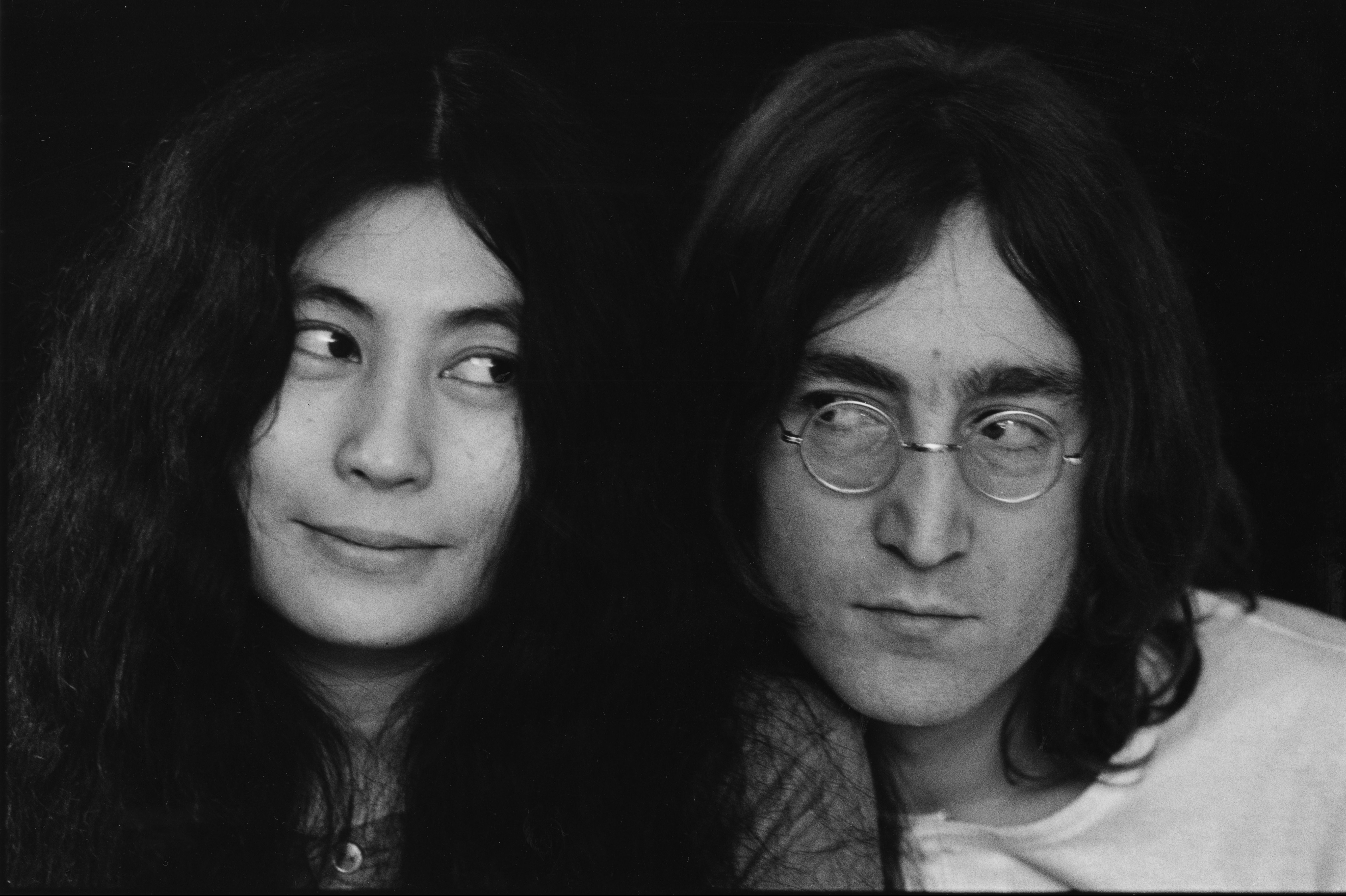It’s rare these days to come across any Beatles-related content that can be described as “new.” More than 50 years after they broke up, it can feel like every video clip, photo and interview connected to the Fab Four has already been unearthed and dissected. But while 24 Hours: The World of John and Yoko, streaming now via The Coda Collection, isn’t exactly brand new, it’s pretty damn close — the half-hour BBC special only aired once, on Dec. 15, 1969, and it’s now available to watch online for the first time.
Directed by Paul Morrison, the cinéma vérité-style documentary actually spans five days (despite its name), following John Lennon and Yoko Ono at Lennon’s Tittenhurst Park estate, Abbey Road Studios and the Apple Records offices in London as they work on their campaign to promote peace. We’re gifted with behind-the-scenes glimpses of the couple, whether they’re intimate moments (like when we see them waking up and drinking tea in bed) or more mundane business decisions (trying to decide how many “War Is Over” posters and billboards is enough).
The one thing that 24 Hours: The World of John and Yoko really hammers home is how savvy Lennon was with the press. (How could he not be after nearly a decade of being in the most popular band in the world?) In his mind, he was selling the concept of peace. “The campaign hasn’t been going as long as Coca-Cola’s or Shell, and the identification symbols aren’t as well known,” he says at one point. “It’s going to take us a few years for them to know when we say ‘peace’ what it means.”
But that doesn’t deter him. We watch him and Yoko participate in interview after interview at Apple, enduring silly or occasionally outrageous questions (one journalist asks Lennon if he thinks Ono — to whom the former Beatle had already been married for nearly nine months at the time — is sexy) for the opportunity to drop a line or two about peace into their answers. Each time, he goes out of his way to present the reporter with an armful of signed albums. At one point, as he and Ono are attempting to drive off somewhere, a BBC reporter boldly asks if she can join them in their car to ask him a few questions. Instead of ignoring her and leaving or brushing her off, Lennon confirms she’s with the BBC and politely asks her if she can come back the next day.
But Lennon’s media training wasn’t always enough to protect him and Ono from scrutiny, and one of 24 Hours‘s most compelling scenes is centered around his famously heated interview with New York Times war correspondent Gloria Emerson, who won a National Book Award for her book about the Vietnam War and didn’t take too kindly to Lennon and Ono’s “campaign for peace,” sensing that it was perhaps more just a campaign for their forthcoming album. “You’ve made yourself ridiculous,” she insists. “You don’t think you’ve saved a single life, [do you]? You’ve probably helped ‘Cold Turkey’ move up the charts.” At one point, she asks him point-blank: “Are you advertising John Lennon or peace?”
We get glimpses of Lennon’s notorious temper throughout this exchange as he defends himself and cites the fact that protestors were singing “Give Peace a Chance” as proof that he’s contributing to the movement. When Emerson says she used to admire him, he snaps, “Well, I’m sorry you liked the old mop-tops, dear, and you thought I was very satirical and witty and you like Hard Day’s Night, love, but I’ve grown up. But you obviously haven’t.” After Emerson responds, “Have you?” he settles back into himself and gives us a self-aware taste of that wit he mentioned. “Yes, folks,” he says, pointedly looking at the camera. “What have you grown up to?” she demands. “Oh, 29.” (Hey-ooo.)
It’s a fascinating look at two people who share the same goal squabbling over how exactly to achieve it. In hindsight, it’s easy to see why Emerson might have been offended by the levity being championed by Lennon and Ono. (Elsewhere in the film, we see them in the studio donning fake noses and recording a planned album where “one side is laughing, the other is whispering.”)
“We have to make it jolly,” Ono insists. “If we make it jolly, maybe we might stop the war. Because the thing is, when you’re happy and you’re smiling, you don’t want to kill somebody, do you? It’s when you’re very serious you start to think about violence and death and killing. I mean, have you ever seen a person killing somebody with a smile on his face and being happy? No, killers are unhappy people, and they’re violent because they’re so unhappy and so damn serious.”
That, of course, is very naive. No one’s going to stop a government from napalming women and children by laughing into a mic for 20 minutes. But still, it gives us a better sense of Lennon and Ono’s motivation — and it’s one of several moments in the film that feel eerily connected to Lennon’s 1980 murder. At one point, we see him opening a stack of fan mail and press clippings; he stumbles across one letter from a crazed fan warning him that the ghost of former Beatles manager Brian Epstein informed him (via a Ouija board, no less) that someone will attempt to assassinate Lennon in March. The dates are off by more than a decade, but it’s still a gut punch to watch an amused Lennon read lines from the ominous fan letter.
24 Hours: The World of John and Yoko is currently streaming on The Coda Collection, which can be accessed by Amazon Prime members for $4.99/month. (You can also sign up for a seven-day free trial to watch.)
This article was featured in the InsideHook newsletter. Sign up now.
